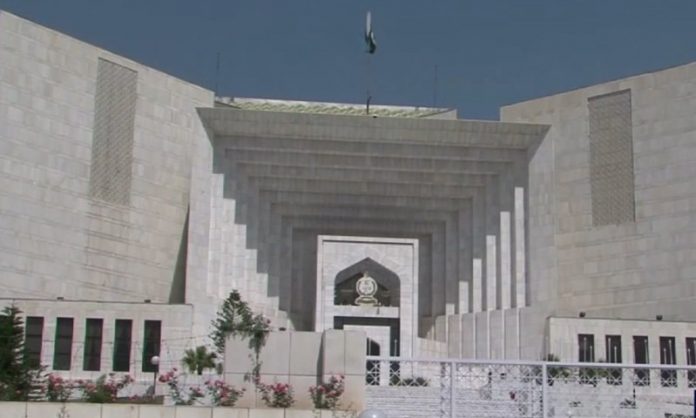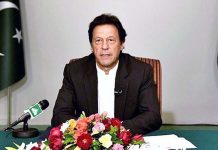ISLAMABAD: The Supreme Court (SC) on Thursday completed hearing the Panama Leaks case and reserved its verdict, which it maintained will be announced at a later date.
A five-member bench led by Justice Asif Saeed Khosa remarked that it will review all angles of the case in detail and then announce a verdict. Other judges in the bench include Justice Ejaz Afzal Khan, Justice Gulzar Ahmed, Justice Sheikh Azmat Saeed and Justice Ijaz-ul-Ahsan.
Justice Asif Saeed Khosa observed that 26,000 pages were submitted in the Panamagate case and the judges will read “each word” of it. He observed that it was not a case wherein a short order could be passed.
“The court will decide the case only after considering the material submitted in the court and will announce its verdict in accordance with the law and Constitution,” Justice Khosa remarked.
Earlier, when the hearing of the case resumed, the top court questioned the federal government’s recent LNG deal with Qatar.
In response to Pakistan Tehreek-e-Insaf (PTI)’s counsel Naeem Bukhari’s plea that the Pakistan Muslim League-Nawaz (PML-N)-led government had awarded a 20-year contract for import of LNG with Qatar to reward a prince, who had come to the rescue of the ruling Sharif family in the Panama Papers scandal, Justice Gulzar Ahmad observed that if the government signed the deal to bestow favours to Qataris then it may be conflict of interest.
The apex court’s five-judge larger bench asked the PTI counsel to inform the court about the status of the LNG contract. To this, Bukhari said the matter had been challenged before the Sindh High Court.
During the proceedings, Justice Ejaz Afzal Khan observed that it was yet to be established that the Sharif family’s four apartments in London’s Park Lane neighbourhood were purchased in 1993. The judge also questioned the authenticity of the PTI documents submitted in the court to establish the petitioner’s claims regarding the London properties.
“The court cannot give a judgment on the basis of disputed material,” he remarked. “Are we supposed to dispose the normal law of land and entertain the documents which have not come through proper custody?”
However, Justice Khosa observed: “If we do not entertain PTI documents then Sharif family’s documents will also not be accepted on the same basis.” He remarked that if the court applied the same formula then 99 per cent of the documents pertaining to the case will have to be “thrown away”.
Justice Khosa also observed that it was unfortunate that a trend had developed in the society that “justice is whatever has been done in our favour”. “If court issues a verdict against anyone then it is deemed that the judge has been bribed,” he said. Chief of Awami Muslim League (AML) Sheikh Rasheed said that Sharif family had tried to escape the Panama Leaks case but the court has dismissed National Accountability Bureau (NAB) chairman’s statement.
Attorney General Ashtar Ausaf Ali in his submissions before the court said that any conclusive judgment cannot be given in the case until the allegations hurled by the petitioners are not probed and verified.
Meanwhile all eyes are on the verdict of the case which took more than 126 days of the Supreme Court. The Panama case changed the political landscape of the country, which was bone of contention between two political groups; the first comprising of all of the political opposition including the Pakistan Tehreek-e-Insaf and the second belonging to supporters of the ruling party Pakistan Muslim League-Nawaz.
The Panamagate Scandal
The leaked papers, comprising 11.5 million documents from Panama-based law firm Mossack Fonseca, exposes how some of the world’s most powerful people have secreted their money offshore, and also implicated Sharif’s sons Hasan Nawaz and Hussain Nawaz.
Three of Sharif’s four children are named in the Panama Papers – daughter Maryam, who has been tipped to be his political successor and sons Hasan and Hussain – with the records showing they owned London real estate through offshore companies administered by Mossack Fonseca.
The Panama Papers have whipped up a storm of controversy over offshore wealth, ensnaring political leaders, sports figures and underworld members across the globe in the scandal.





